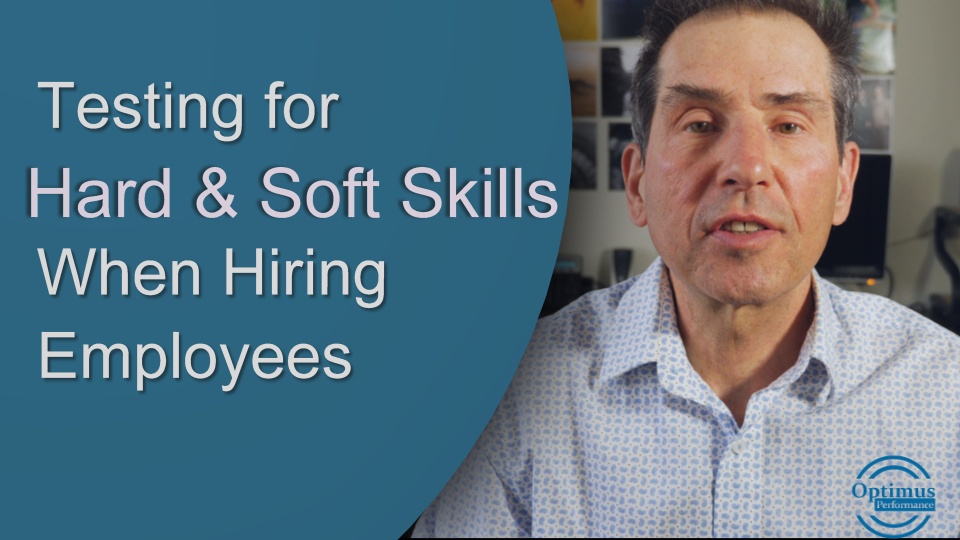Employees need both hard and soft skills to do their job and perform well. Hard skills are the technical skills needed to do the work such as programming, operating machines and software, and knowledge-based skills such as scientific, legal and health.
Soft skills are interpersonal skills such as communicating, listening, collaborating, negotiation, giving feedback, conflict resolution, etc. These skills have always been important but are even more in demand now that a lot of emphasis is placed on teamwork. They are also essential skills for leadership and the more they are developed the better the quality of leadership.
Assessing Hard Skills
When hiring employees, you are essentially assessing how well their skills meet the requirements for the job. People can claim they have a specific skill set and the best proof would be past performance. You can validate the past to a certain extent through the resume, interviews, and reference checking. Adding skill testing can give you immediate insight into how deep they possess the skills.
I remember helping a small business owner hire an executive assistant and one key task was to draft letters to clients and suppliers. I had the candidate sit at the computer and open Word to draft a letter according to instructions I provided. Even though she had written highly proficient in Word on her resume it quickly became clear that her skill level was below par.
You can create your own testing method for the skills you need. This should not be too difficult and is highly recommended specially to verify critical skill levels.
Assessing Soft Skills
For many companies soft sills can be more difficult to assess. This is because we tend to focus more on the hard skills especially as the workplace becomes more dependent on evolving technologies.
But as I mentioned earlier, soft skills are seen today as important as hard skills, as if you cannot collaborate with others, it can hinder teamwork, collaboration, and innovation.
Testing for soft skills is best done in the interview and using behavioural type interview techniques to have the person demonstrate certain basis skills such as active listening.
I use a psychometric assessment when helping my clients hire new employees as this will give me an indication how well suited is their personality to developing soft skills. For example, of someone is higher on the scale of Sociability, I know that they like interacting with others and tend to be friendly and outgoing. If they are exceptionally low on this scale, they would prefer working alone and this could affect collaboration if group discussions need to happen often.
Using this type of psychometric assessment is more about knowing how well a person fits the job and then developing their skill set that is most crucial for performing well. You do not want to try and turn a highly introverted person who prefers working alone into a friendly outgoing person. This never works and is counterproductive and a waste of time and money.
Fit for the Job
The best approach for hiring the right person is fit for the job. This should be skills fit, company fit and job fit. The job fit part is where you use testing to see how well their personality fits the job and this should be to measure their fit to a performance model for the job as in the graph below.
The more you use well-developed resources to test for both hard and soft skills, the better your chance will be to hire the right person for the job.
